Macro Plastics began in 1988, changing the agricultural industry with its innovative plastic container the MacroBin! Prior to that, the standard harvest container was the wood bin. Although there are still farmers and packers who have not made the switch from wood to plastic, our 30-year tenure has justified the reasons in which companies originally decided to trust in our plastic bins and make it the new standard.
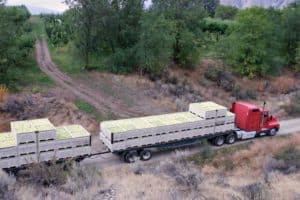
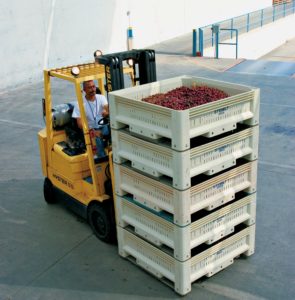
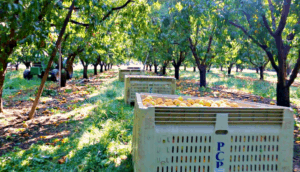
Longevity
Prima Frutta Packing has been a customer of ours since 1990. When asked about the addition of MacroBins since then, president Tim Sambado said “We’ve added apple bins over the last 20 years and still have some of the original 1990s in the mix… we first anticipated 20 years out of them and we are getting more than that in many cases”
There’s no comparing the durability of wood bins to our carefully designed plastic bins, which go through extensive testing by our team of engineers. Our bins are impact and UV resistant, meaning less damages from forklift mishaps and deterioration when stored outside. Diana Fruit Preserving Company stated that the damage rate of their bins has been cut by 18.75 times since switching from wood to the ProBin 26-S.
Sanitation
Not only has the ProBin greatly reduced the damage to Diana Fruit’s containers, but the ProBin-26S has also cut their cleaning time by 50 percent. All of our products are made with FDA-approved polypropylene plastic that is non-porous, preventing the absorption of water and chemicals. It dries off quickly after rinsing so that it’s ready to go back to work!
Sanitation is of the highest importance in the food industry. Wood often requires extra liners to prevent contamination from splinters or bacteria, but our plastic bins are easily cleaned and do not splinter.
Mariani Packing Company is the largest private dried fruit manufacturer in the world. They used to use wood bins during processing. Unfortunately,with dark dried fruits, such as prunes, raisins, or cherries, there was not a lot of contrast between the color of the fruit and the inside of the wood bins. This made it very difficult to check the product for wood particles and other contaminants.
In 2002, in order to improve their quality control, Mariani began the conversion from wood to the injection-molded plastic ProBin 24-S from Macro Plastics. Because the materials used to manufacture ProBins are FDA-approved and splinter- resistant, Mariani is able to store and mix the dried fruit directly in the ProBins. The light color allows Mariani’s laser sorters to easily detect foreign materials or separate product that does not meet their quality standards.
“The ProBin 24-S has been a very important component in our ongoing efforts to provide the highest standards in food safety to our customers and consumers.”
– George Sousa Jr., President of Mariani Packing Company
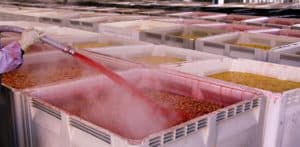
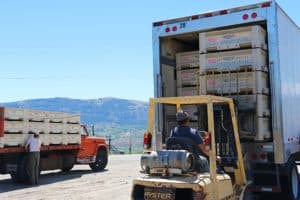
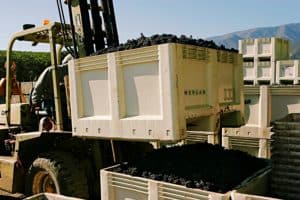
Tare Weight
One of the biggest upsides to the use of plastic containers is the lighter and consistent tare weight. Diana Fruit went from using 140 pound wood bins to the 92 pound ProBin 26-s – and that’s not an outlying statistic by any means. The switch from wood to plastic bins commonly reduces tare weights by up to 40%. Lighter weights allow for easier handling by employees and budget savings by the company.
On a recent visit to the grower owned cooperative, Pacific Coast Producers, Steve Freeman (Vice President of Field Operations) shared with us some of the main benefits that he sees in using our bins during harvest. He mentioned that there’s a much greater ease of use for the growers with no splinters or moving around in the field. Everything they do is on a gross pound basis, meaning they pay truckers and cold storages by the gross pound. Since the MacroBins they own weigh 40-45 pounds less than a wood bin, they can haul 50 bins per load compared to 44 wood bins from the tare difference alone. Additionally, the weights of wood bins vary based on its build, saturation, and broken or missing parts. Pacific Coast Producers pay their growers and pickers by the weight of produce collected in a bin, so it’s not fair to set a standard bin weight when there’s such an inconsistency.
Product Protection
We have a variety of options in our catalog of containers. There are bins with solid walls ideal for food processing, and bins with ventilation slots that maximize the preservation of fresh produce.
Many products require cooling. With ventilation slots placed around the entire surface, the MacroBins are optimized for quicker cooling and constant air flow. The careful designs of MacroBins also allows for bins to be stacked in perfect lines, making it easy to leave uniform space between stacks for better air flow. The bins are equipped with unique feet that interlock to the bin below it, creating reliable columns of bins that are uniform and straight.
Smooth, round corners and sides reduce the damage to fruit, increasing the yield of your harvest. Many companies have to utilize additional padding placed within wood bins to limit bruising, but this prevents ventilation, which is critical for many of more delicate products like cherries and strawberries.
With all of the benefits and savings from using plastic bins versus wood bins, it’s easy to see why so many businesses have chosen Macro Plastics as their go to agricultural bin supplier!


